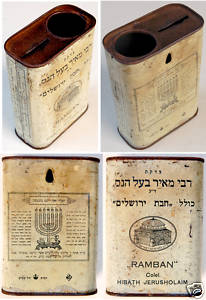Why do I go to Uman for Rosh HaShanah? Let me count the whys.
First of all, I go because the Rebbe said to come to him for Rosh HaShanah. This alone is sufficient reason to go. I need no other. If you have any inkling of the chassidic mind, you understand that if “the Rebbe” says to do something, the chassid does it. This is what it means to be a chassid. The Rebbe is the spiritual master and guide, and I, the chassid, am the perpetual novice.
I go for a number of personal reasons as well. Even though I live in Yerushalayim/Jerusalem, the Holy City, and regularly attend some of the local Breslov shtibels, I feel more strongly attached to Breslov as a chassidut when in Uman for Rosh HaShanah. (Thank God, I always feel connected to the Rebbe z”l, but to the chassidut most strongly when in Uman for the pilgrimage.)
I go to see my brother, who lives in New York, and my nephews and their children who also live Stateside. I go to see friends who live in California, Massachusetts, Michigan and elsewhere—including here, in Israel, whom I don’t see all year long. Catching up on each other’s lives, sharing Torah insights and struggles, offering help to newcomers and old-timers, and receiving from them as well. This, too, increases my feelings for and connection to Rebbe Nachman and Breslov chassidut.
I go to daven/pray with a minyan of 3,000-plus people, people who take their time to invest themselves in every word of prayer, screaming, shouting, swaying and singing. The nigunim/melodies alone are worth the trek. Not every prayer can be put into words. Some must be put into (or to) music.
I come to marvel at the diversity of Jews and Jewish “types” that come to Uman. I come to marvel at their self-sacrifice in making the hajj. I come to marvel at those who prepare tons of food—meals, snacks, drinks—for others, with no thought or interest in getting paid for it. I am humbled by all the volunteerism I see there.
I go to do hitbodedut in the Sofievka, an amazingly beautiful park.
I go to say the Tikkun HaKlali at the Rebbe’s grave site.
I go to speak to Rebbe Nachman z”l. Notice I write “speak,” not “pray.” We Jews pray to God and only to God. We Jews do not pray to any person, being or object whether animate, inanimate, tangible or intangible, but only to the One and Only Creator. How do I speak to a dead man? Before he passed away, Rebbe Nachman pointed out that for tzaddikim, dying is merely going from one room to another. Even though we are speaking to him from the other side of the door, he hears what we say. (In fact, he said all dead people hear what is said to them, but that not all of them are at their graves. But tzaddikim are always at theirs.) (How I hear his responses we will leave for another day.)
Returning (somewhat) to the first reason, I go because I “understand” (using the word loosely) that since Rebbe Nachman z”l uses Rosh HaShanah for tikkun haolam, my being present is a kindness for you and every member of humankind, past, present and future.
I don’t know if I recorded all the reasons I go, but these are some of them.
© Copyright 2015 148west.com/O. Bergman


